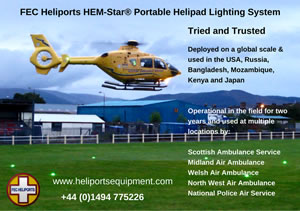GKN Aerospace2008-05-20 09:04:24
GKN Aerospace develops techniques for rapid deposition of composite materials
GKN Aerospace develops techniques for rapid deposition of composite materials for aerospace components - sees increases in deposition rates by a factor of 40.
See us at SAMPE - booth number 536
With ever more of the airframe content manufactured from composite materials (some 60% of airframe content on the latest passenger aircraft) and the aero-engines market now looking more closely at the benefits of using composites, GKN Aerospace is developing and evolving automated processes to allow complex structures, whether flat or curved, for airframe or engine, to be produced swiftly, to a consistent standard, and cost effectively.
Existing products continue to be produced using traditional processes as the cost of the re-certification of the part can be prohibitive. However, new programmes such as the contract for the A400M primary wing spar, have already offered GKN Aerospace an opportunity to introduce some automated manufacturing processes.
For the A400M wing spar - the largest all-composite wing spar ever produced - the Company has employed Automated Tape Lay-up (ATL) equipment for the first time in the manufacture of a primary component. ATL can lay composite tapes 150mm or 300mm wide at rates of around 40lb of tape an hour. This compares with hand lay-up rates of between 1 and 3 lb/hr. Although the ATL process has required significant optimisation by GKN Aerospace as the spars are complex forms that must be manufactured to an extremely high quality, ATL has proved very successful in production, increasing tape deposition rates by a factor of 40.
GKN Aerospace is now exploring the application of Automated Fibre Placement (AFP). AFP is a complementary process to ATL. ATL is excellent in the production of large, reasonably flat structures but can cause composite fibre buckling in more highly shaped components. AFP, although not as fast in laying-up large flat areas, will lay-up accurately over far more extreme curves and changes in direction. The AFP machine does this by using a number of narrower separate tapes to make up the overall tape width.
Each narrow tape is able to start and stop independently as the head moves across the complex shape. GKN Aerospace is evaluating this technology for more demanding wing spar features and believes it could have great value in the manufacture of items such as hybrid engine components and acoustic liners in the engine.
Frank Bamford, Senior Vice President of Business development and Strategy at GKN Aerospace concludes: "As the leading independent supplier of composite structures for aviation, the development of effective automated processes is, of course, a key focus for us. We are examining all our accepted manufacturing practices and exploring many innovative ideas and in future we expect to employ a range of automated processes that will support our highly skilled workforce in producing complex parts far more swiftly, in
greater quantity and more economically than is possible today."
GKN Aerospace develops techniques for rapid deposition of composite materials for aerospace components - sees increases in deposition rates by a factor of 40.
See us at SAMPE - booth number 536
With ever more of the airframe content manufactured from composite materials (some 60% of airframe content on the latest passenger aircraft) and the aero-engines market now looking more closely at the benefits of using composites, GKN Aerospace is developing and evolving automated processes to allow complex structures, whether flat or curved, for airframe or engine, to be produced swiftly, to a consistent standard, and cost effectively.
Existing products continue to be produced using traditional processes as the cost of the re-certification of the part can be prohibitive. However, new programmes such as the contract for the A400M primary wing spar, have already offered GKN Aerospace an opportunity to introduce some automated manufacturing processes.
For the A400M wing spar - the largest all-composite wing spar ever produced - the Company has employed Automated Tape Lay-up (ATL) equipment for the first time in the manufacture of a primary component. ATL can lay composite tapes 150mm or 300mm wide at rates of around 40lb of tape an hour. This compares with hand lay-up rates of between 1 and 3 lb/hr. Although the ATL process has required significant optimisation by GKN Aerospace as the spars are complex forms that must be manufactured to an extremely high quality, ATL has proved very successful in production, increasing tape deposition rates by a factor of 40.
GKN Aerospace is now exploring the application of Automated Fibre Placement (AFP). AFP is a complementary process to ATL. ATL is excellent in the production of large, reasonably flat structures but can cause composite fibre buckling in more highly shaped components. AFP, although not as fast in laying-up large flat areas, will lay-up accurately over far more extreme curves and changes in direction. The AFP machine does this by using a number of narrower separate tapes to make up the overall tape width.
Each narrow tape is able to start and stop independently as the head moves across the complex shape. GKN Aerospace is evaluating this technology for more demanding wing spar features and believes it could have great value in the manufacture of items such as hybrid engine components and acoustic liners in the engine.
Frank Bamford, Senior Vice President of Business development and Strategy at GKN Aerospace concludes: "As the leading independent supplier of composite structures for aviation, the development of effective automated processes is, of course, a key focus for us. We are examining all our accepted manufacturing practices and exploring many innovative ideas and in future we expect to employ a range of automated processes that will support our highly skilled workforce in producing complex parts far more swiftly, in
greater quantity and more economically than is possible today."
For more information contact:
Ferry Rd
East Cowes
Isle of Wight
PO32 6RA
United Kingdom
Tel: +44 (0)1983 283649
